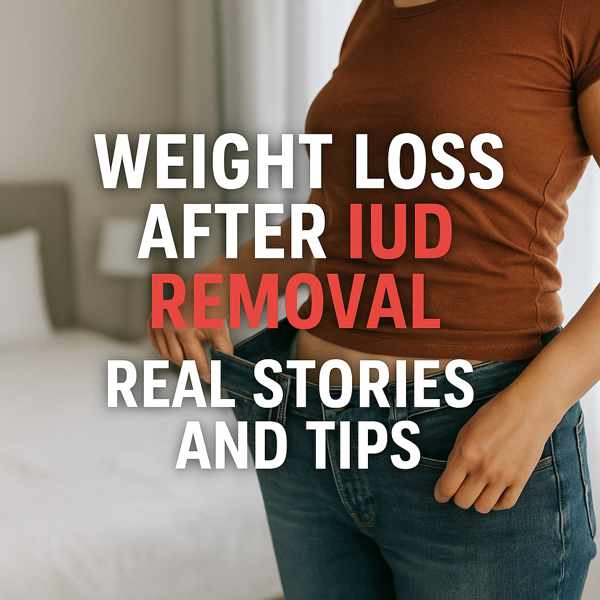
So, is weight loss after IUD removal real — or just a coincidence?
Let’s dive into the connection between hormonal birth control and body weight, and what to expect after removal.
What Is an IUD and How Does It Work?
There are two main types of IUDs: hormonal (like Mirena, Skyla, Kyleena) and non-hormonal (like the copper IUD, ParaGard).
Key facts:
- This can affect hormones throughout the body
- They work by creating an inhospitable environment for sperm
- Both are long-acting and reversible
Does the IUD Cause Weight Gain?
Weight gain is a reported side effect for some IUD users, especially with hormonal types.
Possible factors include:
- Hormones can cause the body to hold water
- Some users feel hungrier while on hormonal IUDs
- Changes in metabolism
- Birth control isn’t always the main cause
How Your Body Adjusts
After an IUD is removed, hormone levels gradually return to their natural state.
- Body releases excess water
- Appetite returns to baseline
- Easier fat loss
- Which can support exercise and motivation
Not everyone loses weight, but if the IUD contributed to hormonal weight gain, you may notice the difference.
How to Support Weight Loss After IUD Removal
To encourage healthy results:
- Support hormone balance and metabolism
- Mix cardio, strength, and flexibility training
- Flush out excess hormones and toxins
- Manage stress
- Sleep well
Be patient — your body may need a few weeks or months to fully adjust.
How Long Until You See Results?
Everyone’s body reacts differently, but here’s a more information general timeline:
- First few weeks: hormones start to balance out
- 1–3 months: potential weight stabilization
- 3–6 months: visible weight loss (if related)
Track your progress using measurements, energy levels, and how your clothes fit — not just the scale.
Is It Guaranteed?
Factors like diet, activity level, age, and overall health still play a major role.
Remember:
- The IUD may contribute to weight gain, but it’s not always the cause
- Healthy habits are essential no matter your birth control status
- Talk to your doctor if you’re concerned about hormones or weight changes
Conclusion
Pay attention to how your body feels and support it with proper nutrition, movement, and rest.
Whether your weight changes or not, regaining hormonal balance is a great step toward better overall health.